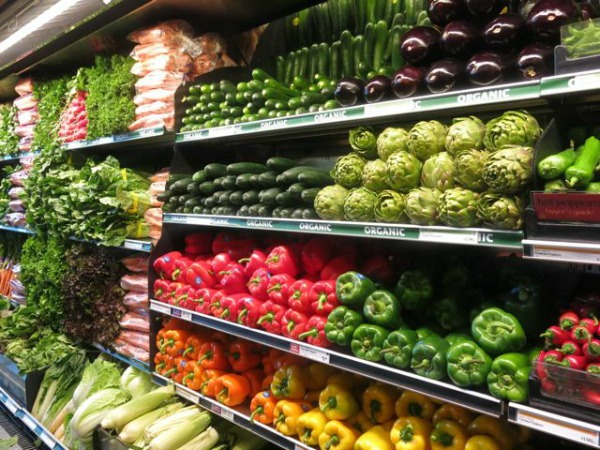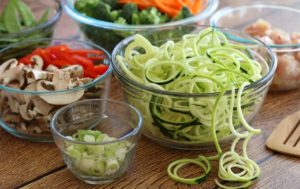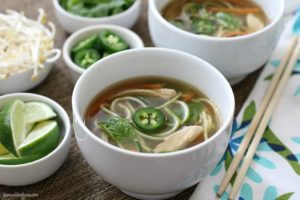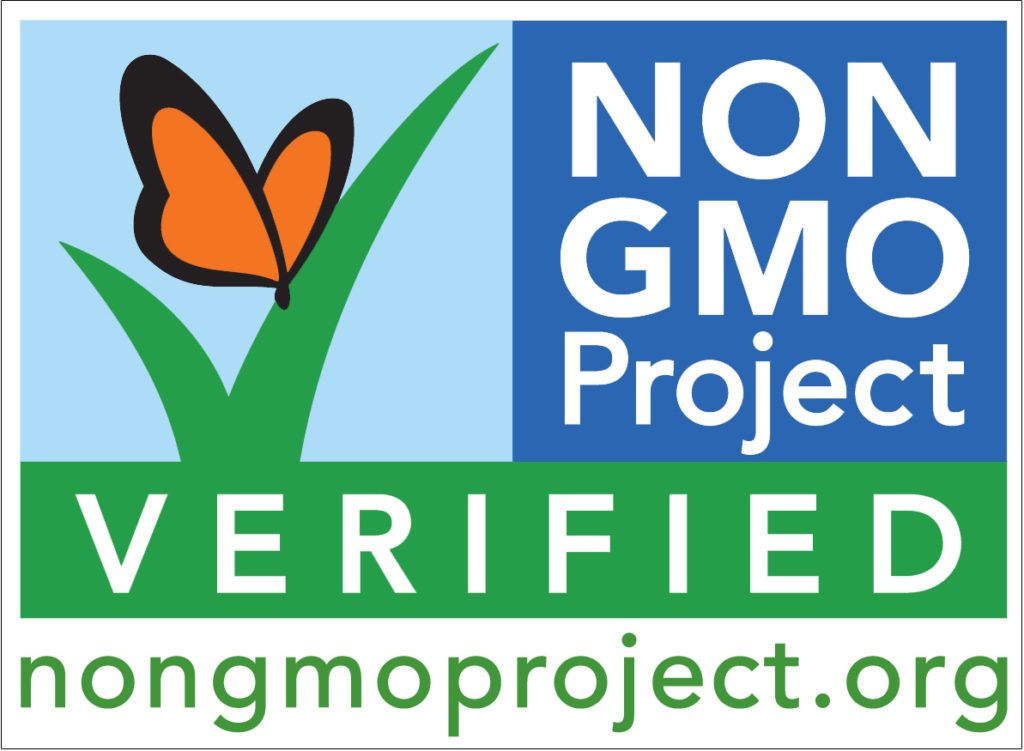
In a nutshell (from a Christian perspective), Real Food is about eating what God created, as close to the way that He created it as is possible.
Sadly, much of the food we eat today is nothing like the nourishing foods our ancestors ate just a hundred years ago, let alone in centuries prior. Unfortunately, due to an industrialized society in which instant-gratification has become the norm, most people have moved away from eating the healthy whole foods to eating man-made processed distortions of the real food graciously given to us by our Creator.
 So it really shouldn’t be a big surprise to see the skyrocketing disease and illness prevalent today. Just as one example, Type 2 diabetes in children was relatively unheard of just 50 years ago, but it is now considered one of the top health concerns of our nation. In fact, the CDC predicts that if our nation continues in the current trend, approximately one in three children born since the year 2000 will become diabetic. It’s important to note that the single largest risk factor for developing Type 2 diabetes is obesity, followed by insulin resistance, which are, of course, directly related to an individual’s diet.
So it really shouldn’t be a big surprise to see the skyrocketing disease and illness prevalent today. Just as one example, Type 2 diabetes in children was relatively unheard of just 50 years ago, but it is now considered one of the top health concerns of our nation. In fact, the CDC predicts that if our nation continues in the current trend, approximately one in three children born since the year 2000 will become diabetic. It’s important to note that the single largest risk factor for developing Type 2 diabetes is obesity, followed by insulin resistance, which are, of course, directly related to an individual’s diet.
So, what do we do?
My humble opinion is, we can either turn a blind eye to the rapidly declining nutritional value of the pseudo-foods and GMOs marketed and sold in our country as food. Or we can choose to humbly go back to our roots and focus on eating what our Creator designed for us – real food. After all, He knows best what we need to maintain health and vitality – He created us!
IMPORTANT NOTE: Before I explain the premise behind what I like to call the “back-to-real-food” movement, I want to take just a moment to clarify my intentions and motivations. I’m not saying that eating real food makes someone more Godly, or more accepted by God. We gain acceptance by God through Jesus Christ alone. Additionally, the Lord is quite clear in His word, that “man does not live by bread alone, but by every word that comes from the mouth of God” (Matthew 4:4). So, the most important thing we need to ingest is His Word. Therefore, our pursuit of health and wellness should be focused not on our own personal gain, but with the goal of being good stewards of our bodies in order that we might be more useful in serving the Lord and advancing His Kingdom.
I hope that the above sidebar helps to clarify that I am not advocating the pursuit of a false God (idol) in my life or anyone else’s. So, with that said, let’s move forward with a brief discussion about what real food is …
 In a nutshell, Real Food is:
In a nutshell, Real Food is:
• Organic (and in the case of meat, preferably grass-fed)
• Whole and unrefined (processed as little as possible)
• Nutrient-dense (full of vitamins, minerals, enzymes and probiotics)
• Free of additives, fillers, preservatives and synthetic/chemical ingredients
• Not genetically modified (No GMOs)
• Traditionally prepared (i.e. fermenting, soaking/sprouting seeds and nuts for example)
In addition, below are some helpful guidelines (abbreviated) from the Weston A. Price Foundation, which I hope will shed a little more light into what “real food eating” is all about.
In simplest terms (from a Christian perspective), it’s about eating what God created, as close to the way that He created it as is possible.
 Real Food Dietary Guidelines:
Real Food Dietary Guidelines:
• Eat whole, unprocessed foods.
• Eat pasture-fed meats: beef, lamb, game, organ meats, poultry and eggs.
• Eat wild fish (not farm-raised) and shellfish from unpolluted waters.
• Eat raw, organic, pastured whole milk products (if you opt to include dairy), such as: raw milk, raw cream, yogurt, kefir, cultured butter and raw cheeses.
• Use animal fats, such as lard and butter.
• Use traditional pure vegetable oils: extra virgin olive oil, avocado oil, and the tropical oils – coconut oil and palm oil.
• Eat fresh fruits and vegetables (preferably organic and raw, if your digestion system can tolerate, or eat lightly steamed for best nutritional value).
• If you are not living grain-free, then be sure that the grains you eat have been traditionally prepared to neutralize phytic acid, enzyme inhibitors and other anti-nutrients. This also applies to legumes and nuts.
• Include enzyme-enhanced lacto-fermented vegetables, fruits, beverages and condiments in your diet on a regular basis.
 • Prepare homemade stocks and bone broths from the bones of pasture-fed chicken, beef, lamb and fish and use liberally in soups, stews, gravies and sauces.
• Prepare homemade stocks and bone broths from the bones of pasture-fed chicken, beef, lamb and fish and use liberally in soups, stews, gravies and sauces.
• Use filtered water for cooking and drinking.
• Use unrefined salt (such as Celtic sea salt or Real Salt) and a variety of herbs and spices.
• Make your own salad dressings using fresh whole ingredients.
• Use natural sweeteners in moderation, such as raw honey, pure maple syrup, coconut sugar, and maple sugar.
In closing, I do want to again point out that true nourishment – of eternal lasting value – only comes through knowing and serving the Lord. If you want to know more about how to get real life – eternal life – I implore you on behalf of the Lord Jesus Christ, to please read the Good News!
Joyfully Serving Him, Kelly

